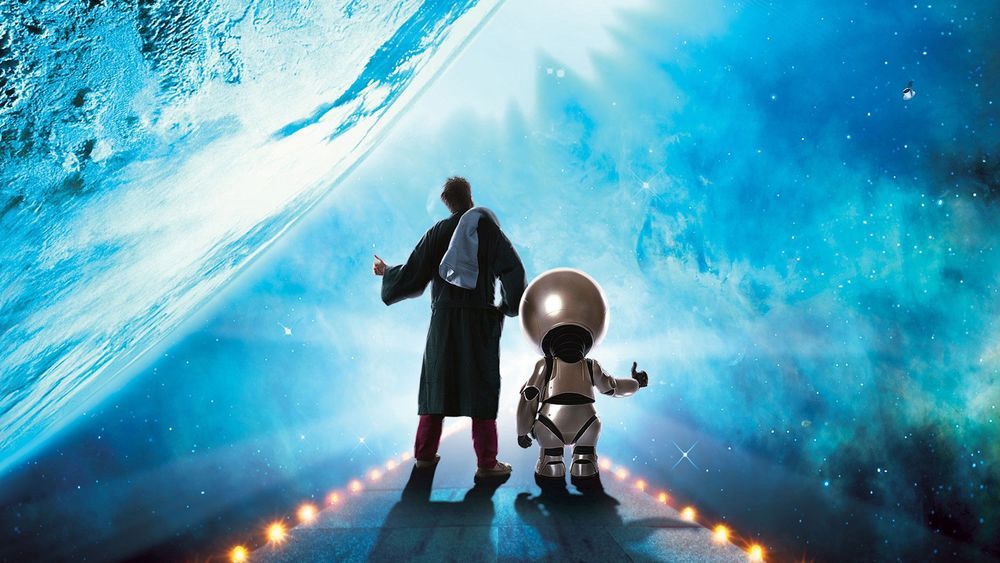Hitchhiking Is Apparently One More Thing Millennials Have Killed
“It seems the days of mutuality and serendipity are over”

Free rides? No more, laments columnist Anne Perkins at the Guardian.
The death of hitchhiking is a modern tragedy | Anne Perkins
A French dude waited in a remote part of New Zealand for four days because no one was willing or able to give him a ride, and then freaked out, getting some attention, if not where he needed to go. His failure means that, according to Perkins,
even in friendly, chilled New Zealand, drivers no longer stop for hitchhikers. And if it does, well that really does sound like the end of the analogue version of the sharing economy.
After begging, hitching is the most elementary point of contact between those who have and those who have not. It is a basic exchange between need and ability to provide.
Millennials no longer have any interest in that “basic exchange” of asking or offering a lift. Why should we? We’ve got Lyft (TM).
even before the poor Frenchman had a tantrum on State Highway 6, there was plenty of evidence that hitchhiking is no longer a cheap and reliable way of getting to where you want to go. Maybe hitchhiking is just too analogue, a bit 20th century for millennials. In a hyper-connected age, when it’s necessary to text to announce a five-minute delay, there is diminishing appeal in committing a whole day (or even just an hour) entirely to chance.
Anyway, there are ride-sharing apps that mean you can be picked up at your door and taken to your destination, which offer some of the virtues of hitching but in an organised, digital kind of way. Yet they also mean sacrificing an element of serendipity, the happy accident of the unexpected place or person, to the security of predictability, and it feels like an expensive compromise.
Uh-huh. While I think ride-sharing apps have probably chipped away at the prevalence and acceptability of hitchhiking, it seems to me that it has been going down in terms of popularity for decades. I was warned against it as a child in the 80s and 90s; the people teaching me viewed hitchhiking as a holdover from America’s exciting but fleeting hippie moment.
Although I’ve hitchhiked abroad — in Israel, a far smaller country with different customs, and even then usually with friends—I don’t know anyone who did it successfully here even in the years when we were all struggling through without smart phones, because it seemed so unsafe. Getting in a car with a stranger? Are you kidding? Perkins’ recollections seem mostly innocent, romantic. Even as a kid, I had a sense that certain unpleasant things would be expected in exchange for being picked up.
Or like in that classic David Sedaris essay — transformed into a radio piece for TAL — wherein he unintentionally comes out for the first time to a leering couple that picks him up while he’s hitching, looking for a three-way.
To call hitching free is naive. In our culture at least, getting a ride could cost you drugs, sex … something. And millennials didn’t kill it. It’s been dying for a while, possibly because the same fear that made me shy away made lots of others shy away too. Maybe that fear is unfounded or unfair. Maybe cable news is responsible for stoking that fear the same way it has sensationalized so many other aspects of our lives.
The Psychology of Why Americans Are Afraid of Historically Low Crime Levels
Who knows? There does seem to be a cultural element because, for what it’s worth, hitching seems to be still alive and well in Israel, at least among Jews. Although I probably benefited from white / in-group privilege, I was never asked for anything untoward, or anything, actually, in exchange for a ride there. If Perkins is feeling nostalgic, maybe she should head to Tel Aviv.
Support The Billfold
The Billfold continues to exist thanks to support from our readers. Help us continue to do our work by making a monthly pledge on Patreon or a one-time-only contribution through PayPal.
Comments